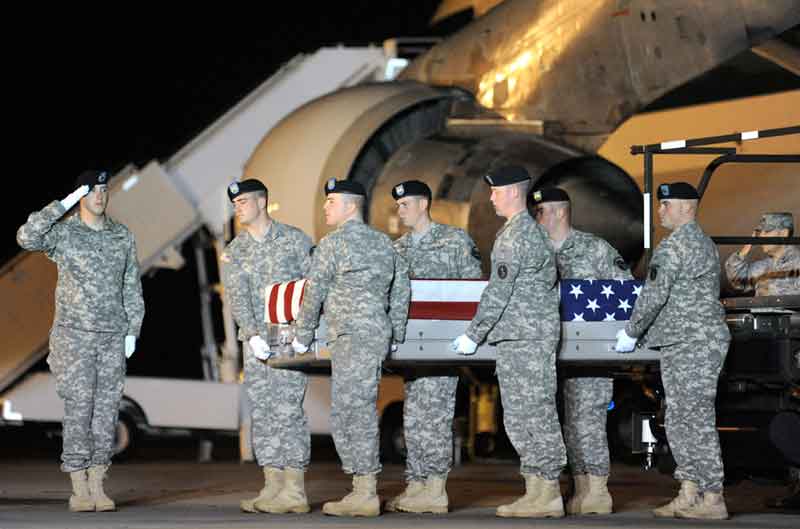It feels like a lifetime since this nation was at peace. But, as it has been for more than a decade, the United States remains at war.
War — though sometimes necessary for the defense of our nation — never stops being hell. It’s hazardous, demanding, tedious, frightening, gruesome, precarious and frustrating. And all who enter the military, from the most elite special forces to the lowliest clerks, must be ready to perform their roles in times of tranquility or hostilities alike.
The expectations that service members have of “the boss” during wartime duty aren’t high or unreasonable: Adequate equipment and weapons; competent officers to lead them; capable medics to care for the injured; honorable treatment of their remains, should they die for their country; and compassion and support for their families.
The unfolding stories about mishandled remains at the Dover Port mortuary outrage an American public that reveres those who make the ultimate sacrifice. Words can’t adequately describe the anguish and doubts that military families are experiencing.
Three senior officials at Dover Air Force Base, Del., were disciplined for gross mismanagement after an 18-month Air Force investigation revealed that the men knew that two body parts were lost at the morgue, yet did nothing to alter the lax procedures that allowed it to happen.
No one was fired in a case that brought back painful memories of an Army investigation, concluded last year, that identified at least 211 military remains as mislabeled or misplaced at Arlington National Cemetery.
The Pentagon shifted into damage control on Wednesday, reassuring members of the military and their families that the problems uncovered by the Air Force and the independent U.S. Office of Special Counsel at Dover have been fixed. Secretary of Defense Leon Panetta ordered a special review at the mortuary and gave a 60-day deadline.
But the story got worse Thursday. The Washington Post reported that, from 2003 to 2008, body parts of U.S. soldiers killed in Iraq and Afghanistan routinely were cremated and dumped in a landfill. The mortuary staff disposed of parts that could not be identified or were found on the battlefield after families had received the bodies of their loved ones.
That manner of disposal was “typically withheld from the relatives of fallen service members,” the Post reported.
Air Force Chief of Staff Gen. Norton Schwartz was pulled before the Senate Armed Services Committee on Thursday to answer senators’ questions. Schwartz said residual remains now are buried at sea, according to military custom. “In 2008, the Air Force came to the conclusion that that was not the best way to deal with those remains,” he said of the landfill dumping.
Caring for the military’s dead is solemn, serious business. For 18 years, media were banned from observing the return of war dead at Dover Air Force Base after President George H.W. Bush initiated a blackout during the 1991 Gulf War. The president believed a prohibition against photographs was necessary to protect the privacy of the families of fallen soldiers.
The irony is that what went on during the blackout years as accepted military policy disrespected the soldiers and their families much more than a photograph ever could.
Editorial by the Fort Worth Star-Telegram distributed by MCT Information Services
Send questions/comments to the editors.



Success. Please wait for the page to reload. If the page does not reload within 5 seconds, please refresh the page.
Enter your email and password to access comments.
Hi, to comment on stories you must . This profile is in addition to your subscription and website login.
Already have a commenting profile? .
Invalid username/password.
Please check your email to confirm and complete your registration.
Only subscribers are eligible to post comments. Please subscribe or login first for digital access. Here’s why.
Use the form below to reset your password. When you've submitted your account email, we will send an email with a reset code.